New launcher from Yandex: application released for show or new face Android? About the fight against Google services, the original search engine and built-in recommendation services …
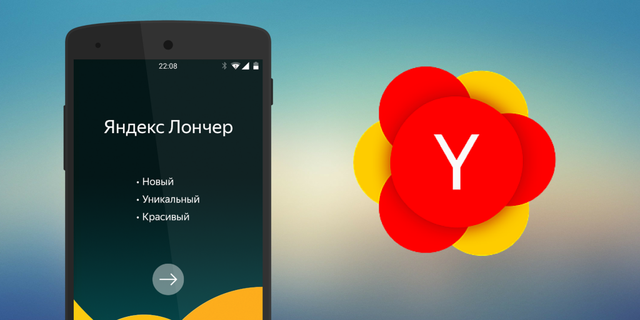
(Unfair competition
They say that there is no place for politics in sports. Whatever the relationship between the countries and whatever the political situation in the world, the strongest athlete always wins during the competition. Judges and fans look exclusively at his result; the current exchange rate or the military power of the athlete's home country does not matter here.
Unfortunately, with technology, the situation is completely different. Oftentimes, the product itself is nothing more than the icing on the cake, created from marketing promises, behind-the-scenes battles, high-profile lawsuits, patent trolling, black PR and spy games. Some of the manufacturers are trying to comply with the limits of decency, and someone is not ashamed to openly use dirty tricks, but no one really believes in beautiful phrases like 'fair competition' or 'let the strongest always win'. Everyone has one unofficial motto – 'money doesn't smell'. More scrupulous comrades in the first league simply have nothing to do and the maximum they can count on is a successfully funded project on Kickstarter.
So I don't think that last year's cold snap in relations between Yandex and Google surprised anyone. Yandex decided that in this way it would be able to squeeze the maximum benefit out of the current situation (including the political one), thought it over well, calculated the odds, and then played out a standard presentation on the topic “we are oppressed by unscrupulous competitors.” A bunch of large companies are engaged in something like this from time to time, and there is nothing unusual about it. Suffice it to recall the same endless lawsuits of the company Apple, which were exactly the same attempts to get rid of competitors by legal means.
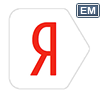 Sofa Analytics No. 27. How Yandex is trying to ban Google in Russia
Sofa Analytics No. 27. How Yandex is trying to ban Google in Russia
True, there is still one serious difference. When Apple were doing patent trolling with might and main, they had a bright and very popular product in their hands. The purpose of the lawsuits was to quickly get competitors out of the way and get even more profit, but not to get something out of nothing. No one in Apple even thought to sue the manufacturers of refrigerators or irons, for the company it simply did not make any sense.
Yandex has a different situation – on the one hand, they claim that only because of the onerous contracts with Google, smartphone manufacturers cannot start using Yandex's smart services and applications. On the other hand, they do not yet have any really strong applications on their hands. If you can still talk about replacing Google search with Yandex search, then the proposals to exchange Google Play for Yandex.Applications or massively replace the standard launcher Android in smartphones with an old Yandex.Shell just take seriously it is impossible. And Yandex should understand this perfectly, and either rely on almost a complete ban on all Google services (then manufacturers and users will have no choice in any case) or that they will be able to demonstrate to the world some really serious project when the whistle with lawsuits and courts will peak. That is, to use this whole situation as PR.
Against this background, the new Yandex launcher, which was released in mid-December (in Brazil and Mexico – October 6), is interesting not so much as an ordinary application, but as 'our answer to Chamberlain'. It was created after all the loud slogans about unfair competition and infringement of rights and was supposed to become an indicator of how seriously Yandex is ready to try to compete with Google in its field.
(Un) original design
When you first start, the launcher asks if you should leave the old arrangement of icons to keep the previous wallpaper. Icons and folders are transferred without any problems, but branded widgets from the standard phone shell will have to look for a replacement.
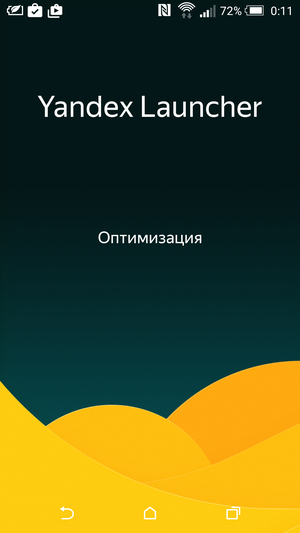




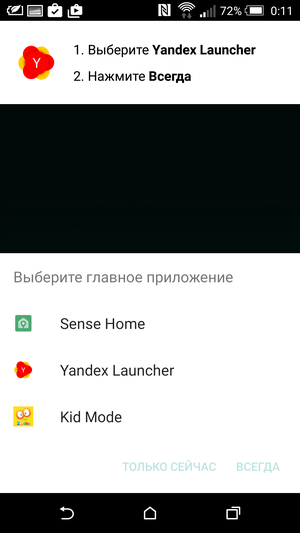
By default, the top part of the screen is occupied by the proprietary Yandex search widget. It is worth noting that it allows not only information on the Internet, but also quickly find installed applications, contacts, browser bookmarks and other similar information. This is by no means new, but convenient.
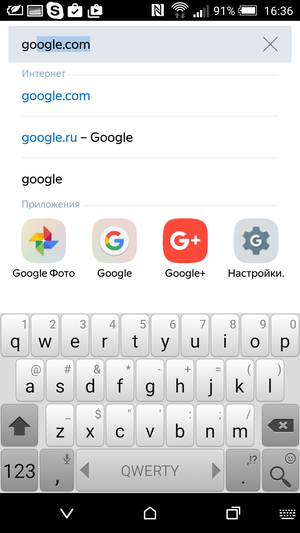
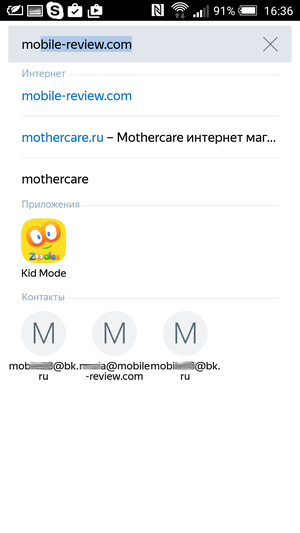
Below the search widget is the desktop itself with a 4 × 4 grid. When scrolling through screens, a 'cube' animation is used. Everything works smoothly, in any case, there are no lags on my phone.
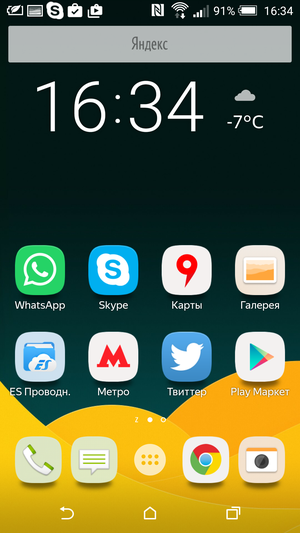
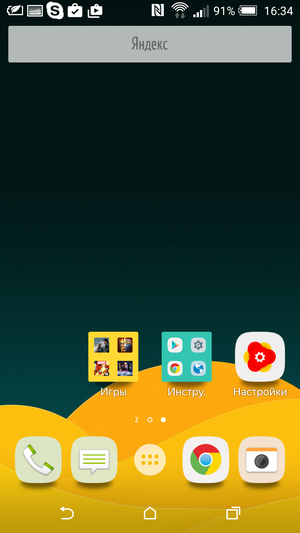
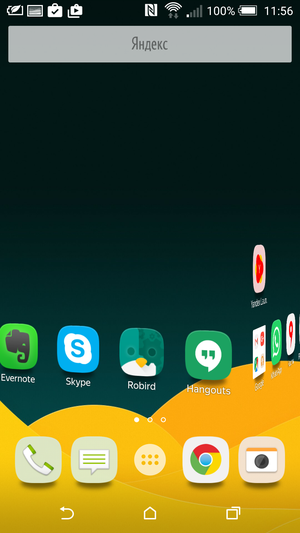
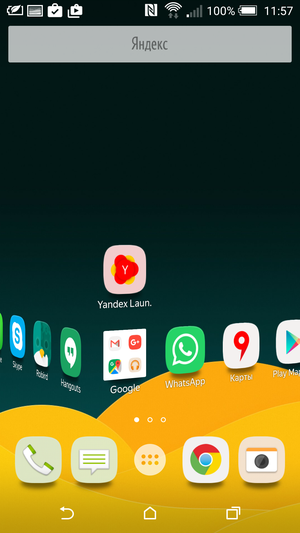
Folders are implemented in a rather original way. Firstly, each folder can either be expanded to full screen or displayed in a separate window. Secondly, you can enable application recommendations in it – based on the contents of the folder, the launcher will select several interesting programs for you. True, only if all applications stored there belong to the same category. The idea is funny, but there is a minimum of practical sense in it, and in reality only a few will use something like that.
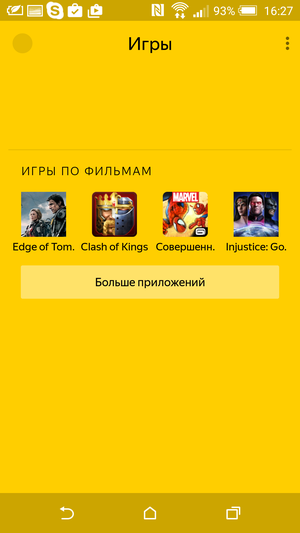


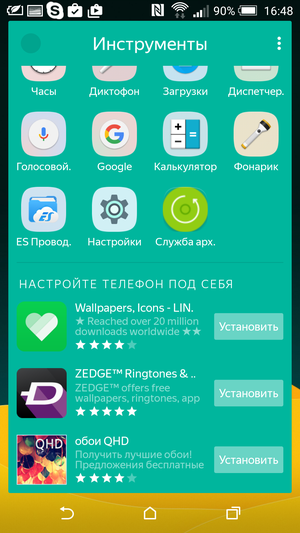
The far left screen is reserved for the Zen recommendation service, which is a kind of analogue HTC BlinkFeed or the list of recommended articles in Google Now. In my opinion, there is no special sense in such things, but some people like it.
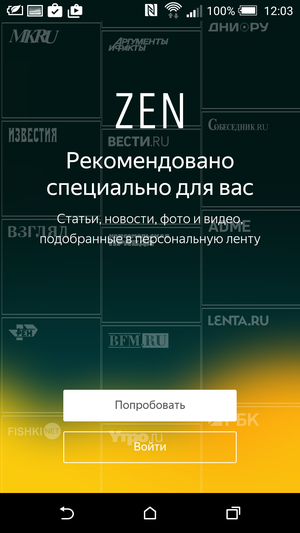



At the bottom of the screen are the dock bar icons. Their maximum number is four (plus the icon for calling the list of programs), there is support for folders.
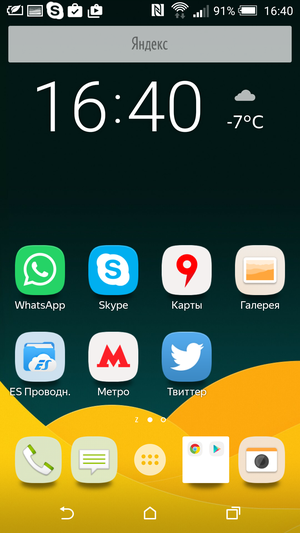
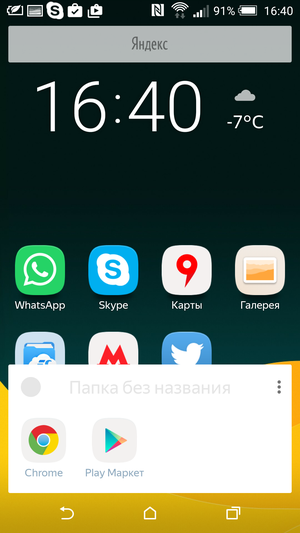
At first glance, the menu with a list of all applications is very similar to that of Android 6.0 – white background, horizontal scrolling, and so on. But there are also a number of significant differences. First, it supports thematic tabs: games, work, tools, reading, photos, and so on. Applications are tabbed automatically, no user action is required. On the other hand, you can't move an icon from one tab to another either, you can only select the number of tabs and their order.
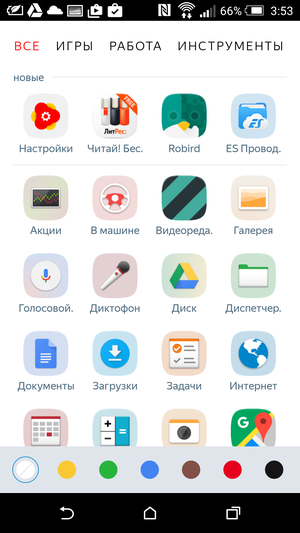

At the bottom of each tab there is a list of recommended applications, from here you can also go to the corresponding section of Google Play. For me, there is no point in coming up with unnecessary entities and it is much easier to open the Google app store right away, but perhaps this is a matter of taste.


Another innovation is the search for applications by icon color. If you don’t remember the name of the application you are looking for, but you can remember the color of its logo or icon, then simply select the desired color at the bottom of the screen. Note that the default icon theme with the oddly named 'pads' is used, and each app icon is superimposed on a background to highlight its main color. Oddly enough, the main exception here is the Yandex apps itself – both the red 'Yandex.Maps' icon and the no less red 'Yandex.Metro' icon will have a standard white background.
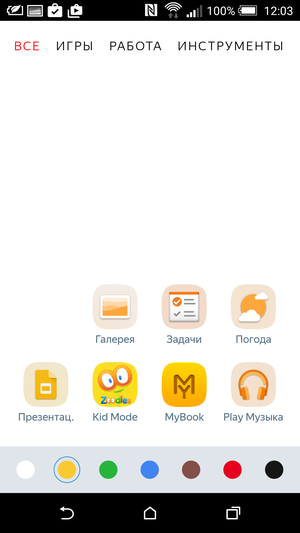
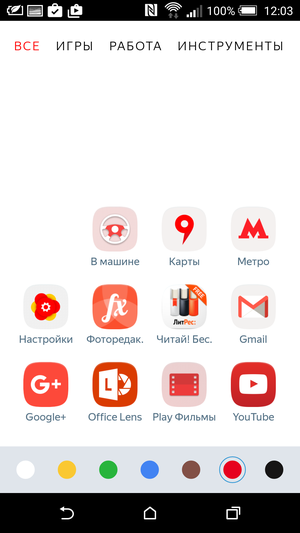
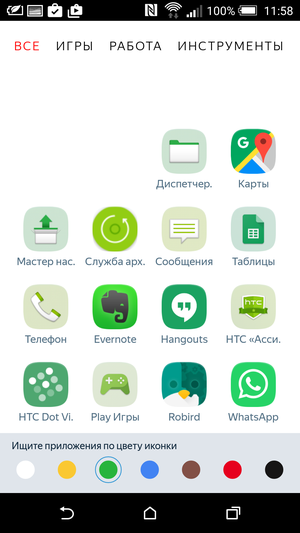
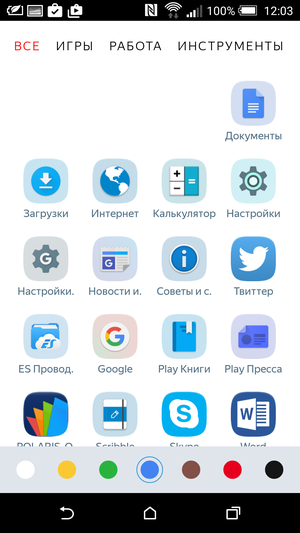
In reality, it is not always possible to use such a 'color search'. For example, what color would you choose if you wanted to find the Google Chrome icon? Yellow, green, red, blue? In any case, the answer is incorrect – you need to choose white and look for the icon in the general list. Why this is so is a mystery.
The launcher has few settings. You can choose the wallpaper and effect when flipping screens, you can customize the desktop grid (any values from 3×3 to 6×6 are supported) and change the style of the branded weather widget. In addition, you can add new widgets to the desktop, select an icon theme (including downloading a new one from Google Play), set the default Internet search and turn off the Zen service screen.
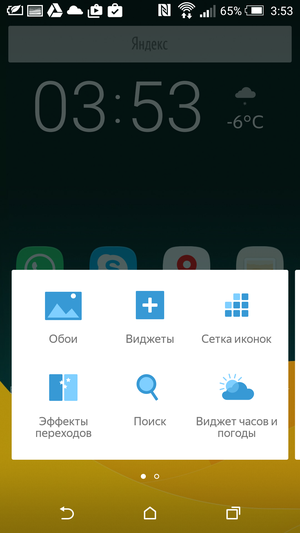
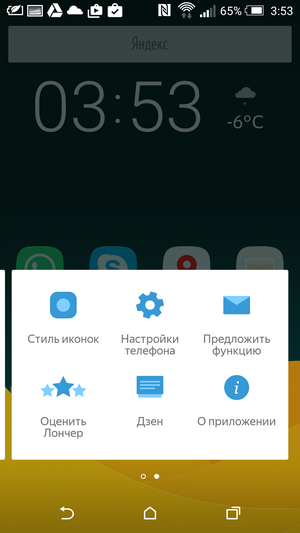


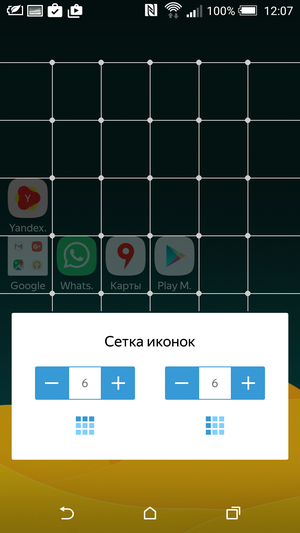
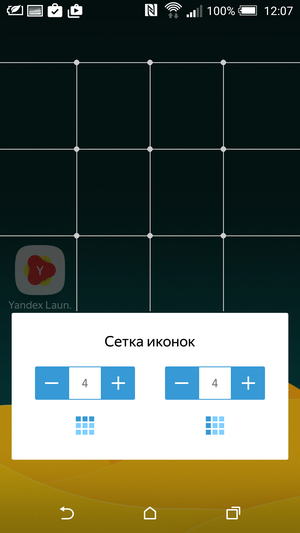



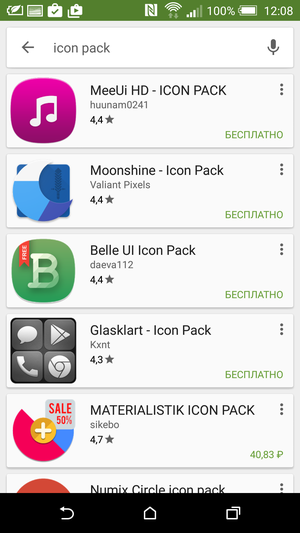
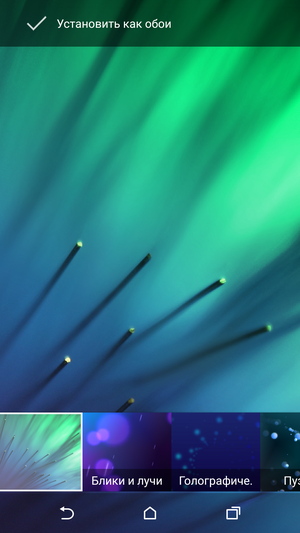
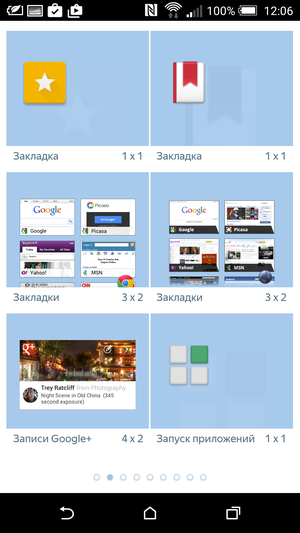
In general, we have before us a pretty minimalistic launcher with support for smart (and rather clever moments) search and several recommendation services. Which are still more likely to be toys for a couple of times than something serious – you will most likely search and install applications through Google Play anyway, and not through the tabs of the application list in the launcher.
(Not) time to grow up
If we consider Yandex Launcher itself, then this is just a relatively good application, even if it does not stand out much against the background of many competitors. Someone will sincerely like it, someone will be really useful, but most people will not even pay attention to it. Still, in order to make a really remarkable and popular product a couple of simple 'chips' are clearly not enough, something much more is needed here. But in any case, the more applications, the better, and what to use – everyone decides for himself.
But to consider it as the result of Yandex's deployed “fight against the bloody dictatorship of Google” or “the implementation of import substitution” simply will not work. Seriously suggesting that manufacturers install it instead of the standard launcher Android is pure madness. It turned out something on the level of the famous 'Russian iPhone', which was an ordinary budget 'Chinese' with a hastily stuck logo. Maybe for some purposes he was also not bad, but only he did not deserve all the loud words spoken and was close. Especially when you consider that there were a lot of similar budget devices on the market without it.
The trouble is that Yandex was many years late with this product. During the childhood of the 'green robot', such applications were really received by users with a bang. Something like how any drawing of a child causes sincere admiration among others. Then, third-party launchers really gave a bunch of new opportunities and were noticeably more convenient and beautiful than the standard interface Android. And the very ability to radically change the interface of your smartphone in two clicks was then still a novelty, many people who bought the first smartphone in their life Android were interested in trying it all.
Now Android has grown, it is a solid and self-sufficient OS, which does not even need to be 'finished with a file'. The standard interface of the 'clean' Android is quite good, to do something on the knee that would be seriously better and more convenient for end users is very difficult. Even the branded shells of the manufacturers, in which they have invested effort and money for years, are gradually becoming lighter and closer to the classic style of Google OS. As for the launchers, over the years they have already created an incredible number of them, Yandex Launcher has no chance of pushing competitors and getting into the first row. Despite the fact that even the most popular launchers usually do not pretend that manufacturers install them by default in their smartphones. And their developers do not declare war on the unjust Google.
If in childhood almost every second child is called a “future artist”, then the situation changes dramatically with age. In order to win the applause of others, it is no longer enough to draw something on a piece of paper. At this point, either do painting seriously, or just do not take up the brush and paints. Or at least do not rush to accuse the world's art galleries that they refuse to exhibit your works solely because of the intrigues of envious competitors.


